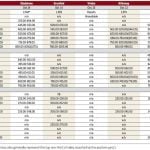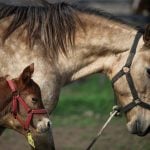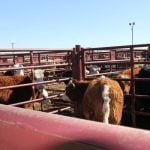Chicago | Reuters — U.S. livestock futures came under pressure on Tuesday as traders waited for signs of increased Chinese demand after Beijing and Washington signed an initial trade deal last week.
China pledged to increase purchases of U.S. agricultural products as part of the agreement, which is meant to reduce tensions after nearly two years of a tit-for-tat tariff war. It included a promise by China to purchase at least an additional $12.5 billion worth of U.S. agricultural goods in 2020 and at least $19.5 billion over the 2017 level of $24 billion in 2021 (all figures US$).
Read Also

U.S. grains: Corn, soybeans rise on yield uncertainty, firming cash markets
U.S. corn futures extended gains into a fourth session on Friday and posted the first weekly rise in a month as slow farmer sales of newly harvested grain and reports of lower-than-expected harvest yields supported the market.
However, traders remain uncertain about the size and timing of future purchases because China said firms will buy U.S. products based on “market conditions.”
“There’s a little bit of uncertainty — skepticism, maybe — as to how much beef may be ultimately in the Phase One China trade deal,” said Mike Sands, an independent U.S. livestock market analyst.
April live cattle futures ended down 0.025 cent at 127.225 cents at the Chicago Mercantile Exchange. March feeder cattle futures slipped 0.325 cent to 144.675 cents/lb.
February lean hog futures dipped 0.325 cent to 67.350 cents/lb. at the CME. The April contract ended 0.275 cent weaker at 73.825 cents/lb.
U.S. farmers are hoping China will increase imports of U.S. meat, particularly pork, because its hog herd has been decimated by a fatal pig disease. China increased its purchases of several types of meat last year as the African swine fever outbreak sharply reduced pork production.
The hog futures market has already priced in expectations for bigger U.S. pork sales to China, Sands said.
“Now the question is, can we get some verification that that’s actually true?” he said.
Chinese beef importers are seeking to renegotiate prices previously agreed when they closed deals to buy dozens of shipments from Brazil because values are too high, according to a report in the online edition of a local newspaper.
Separately, Germany and Poland are discussing new action to prevent the spread of African swine fever in wild boars in Poland close to the German border, Germany’s agriculture ministry said.
— Tom Polansek reports on agriculture and ag commodities for Reuters from Chicago.










